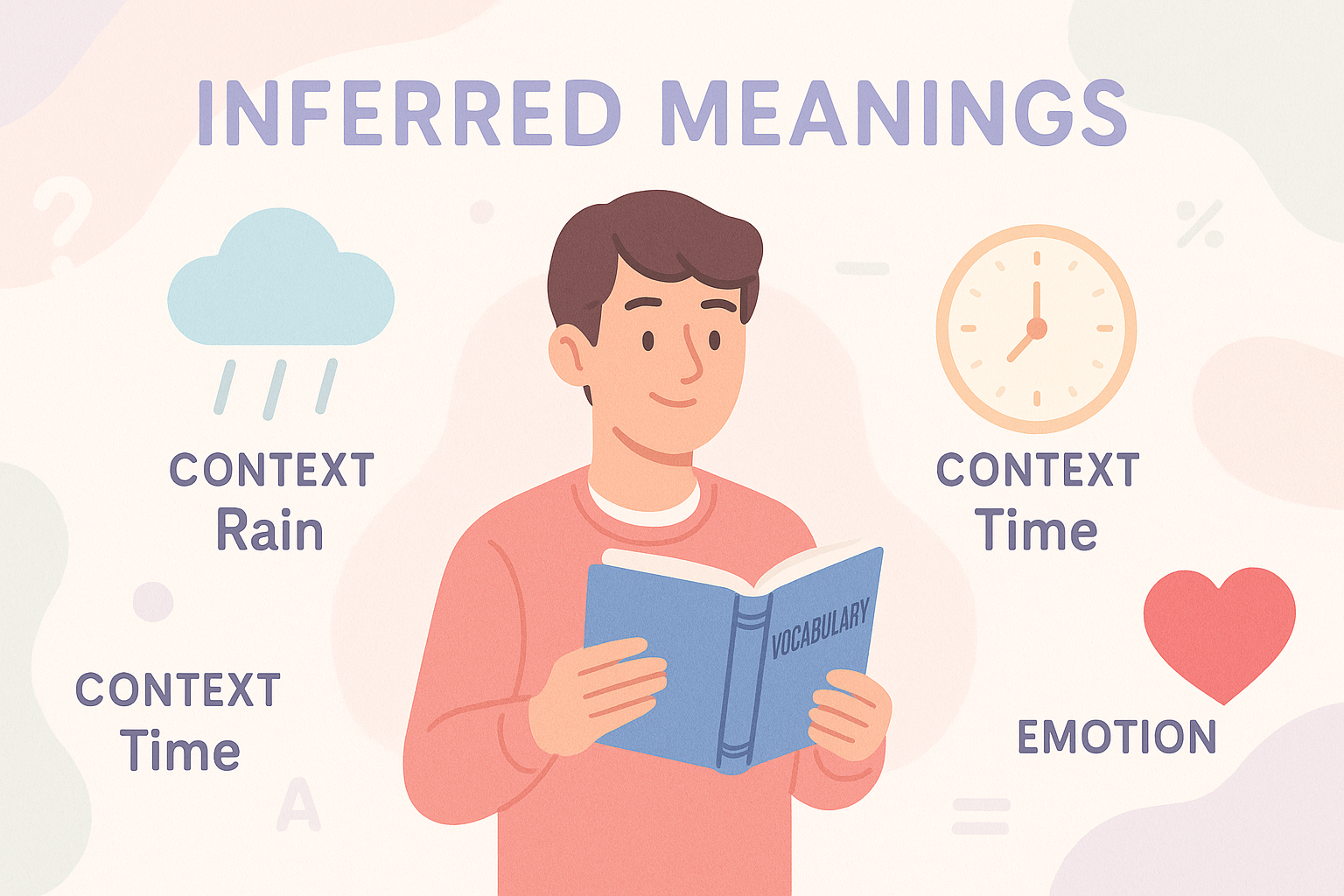Inferred Meaning and Examples with Types Explained
Meaning of Inferred:
The word “inferred” is the past tense of the verb “infer.” It refers to drawing a conclusion based on evidence, logic, or observation, rather than something directly stated.
You infer something when you use clues to understand it, even if no one tells you directly.
Definition:
You infer a conclusion or idea by using reasoning or indirect clues, not direct statements.

Inferred Meaning and Examples in Sentences:
- A man walks in dripping wet without an umbrella.
→ You infer that it is raining outside. - A person enters a bakery and buys a birthday cake.
→ You infer someone is celebrating a birthday. - You see smoke coming from behind a hill.
→ You infer that there may be a fire. - Someone is crying while holding an old photograph.
→ You infer they are feeling emotional or nostalgic. - The teacher’s tone changes and she stops smiling.
→ Students infer she is upset. - A child quickly hides something when the parent walks in.
→ You infer the child may have done something wrong. - You see many cars outside a house with loud music playing.
→ You infer there is a party happening. - The dog is scratching nonstop and whining.
→ You infer it might have fleas or irritation. - Your friend doesn’t respond to your messages all day.
→ You infer they might be busy or upset.
Types of Inference (Kinds of Inferred Information):
1. Deductive Inference
This is a logical conclusion based on general facts.
Example:
- All mammals breathe air.
- A whale is a mammal.
- It is inferred that a whale breathes air.
2. Inductive Inference
Based on observation or patterns.
Example:
- Every time I eat peanuts, I sneeze.
- It is inferred I may be allergic to peanuts.
3. Predictive Inference
Guessing future events from current information.
Example:
- The sky is dark and windy.
- It is inferred that a storm may come soon.
4. Literary/Contextual Inference
Used when reading stories or observing behavior.
Example:
- A character clenches his jaw and looks away.
- I infer he is angry or upset.
Importance of Inferred Meaning:
- Helps Understand Unspoken Ideas:
Readers and listeners infer ideas by using clues, even when no one states them directly. - Improves Critical Thinking:
When we infer, we make logical connections using evidence. - Useful in Real Life:
We infer emotions, intentions, and future outcomes in conversations and situations. - Boosts Reading Skills:
In literature, readers use inference to understand the plot, character motives, and themes.
Phrases Commonly Using the Word “Inferred”:
- “It can be inferred that…”
- “From the tone, we infer…”
- “The author doesn’t say it, but it’s inferred…”
- “What can be inferred from the situation?”
Conclusion:
The concept of “inferred meaning and examples” is essential for better communication, reading, and reasoning. Whether in stories, conversations, or observations, we often rely on inference to make sense of what’s going on. Learning how to infer helps us understand things that we sometimes do not explain directly but understand logically.
Notes on English Literature: https://englishlitnotes.com/
English Notes for All Classes: https://englishwithnaeemullahbutt.com/
Notes on American Literature: https://americanlit.englishlitnotes.com/
Grammar Puzzle Solved: http://grammarpuzzlesolved.englishlitnotes.com
Discover more from Grammar Puzzle Solved by Naeem Ullah Butt
Subscribe to get the latest posts sent to your email.